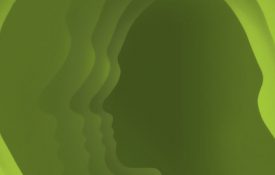-

Despite Stronger Vetting and Sampling, Certain Psychological Research Results Elude Replication
A new series of replication attempts that accounted for possible earlier shortcomings also fell short, suggesting other variables are thwarting replication in certain cases. Visit Page
-

RDoC at 10: Sharpening the Science of Mental Health Disorders
Launched in 2009, the RDoC framework integrates many levels of information spanning the full range of human behavior to better understand the nature of mental health and illness. Visit Page
-

The Story Behind “The Future of Women in Psychological Science”
In September 2020, APS published the first-ever gender parity review of psychological science: “The Future of Women in Psychological Science.” The story behind this study, as told by some of the authors, is a compelling examination of personal experiences and observations. Visit Page
-
What to Do When You Can’t Catch a Break
We’ve all had one of those weeks: Your car breaks down, you get in trouble at work, you spill wine on an expensive dress, a family member gets sick. Sometimes those weeks turn into months or even years, and you begin to wonder if the universe is out to get you. This year has been one of those weeks on a giant scale. “The sad truth is that the pandemic and all of the upheaval it’s caused is nothing compared to what’s going to be happening in the next decade in terms of weather events,” said Sheldon Solomon, a researcher and social psychologist. ...
-

New Content from Advances in Methods and Practices in Psychological Science
A sample of new replication studies of previous replication studies that had not obtained the original effects. Visit Page
-
University of Toronto 2021 Summer Research Opportunity Program
The Canada Summer Research Opportunity Programme (SROP) will support students who are Black, Indigenous, or other People of Color (BIPOC) applying to graduate school in psychology, management, or neuroscience. The 8-week remote mentorship program will run from June 7 to July 30, 2021. Application Deadline: February 15, 2021 For more information, see the Canada SROP website.


